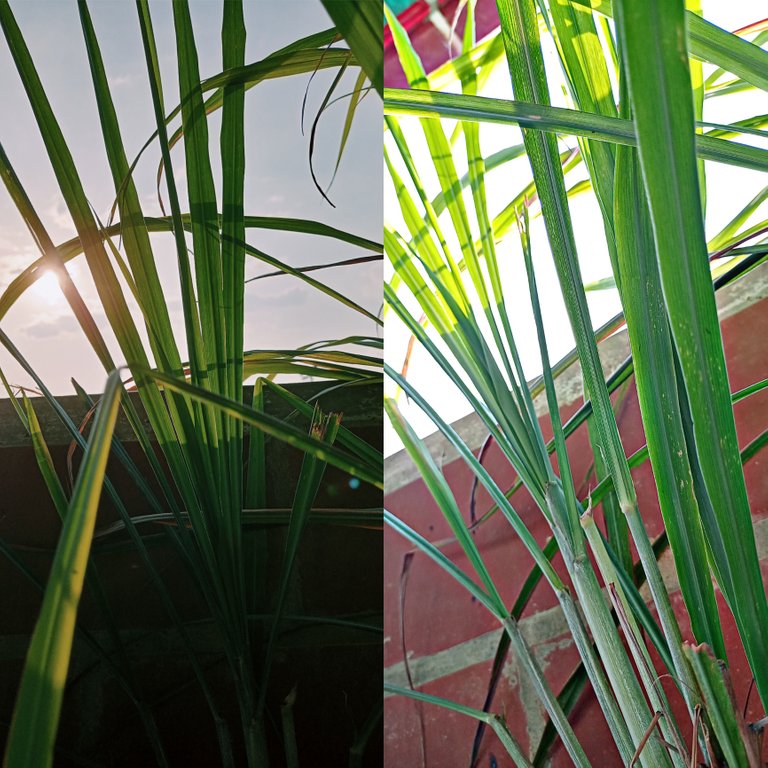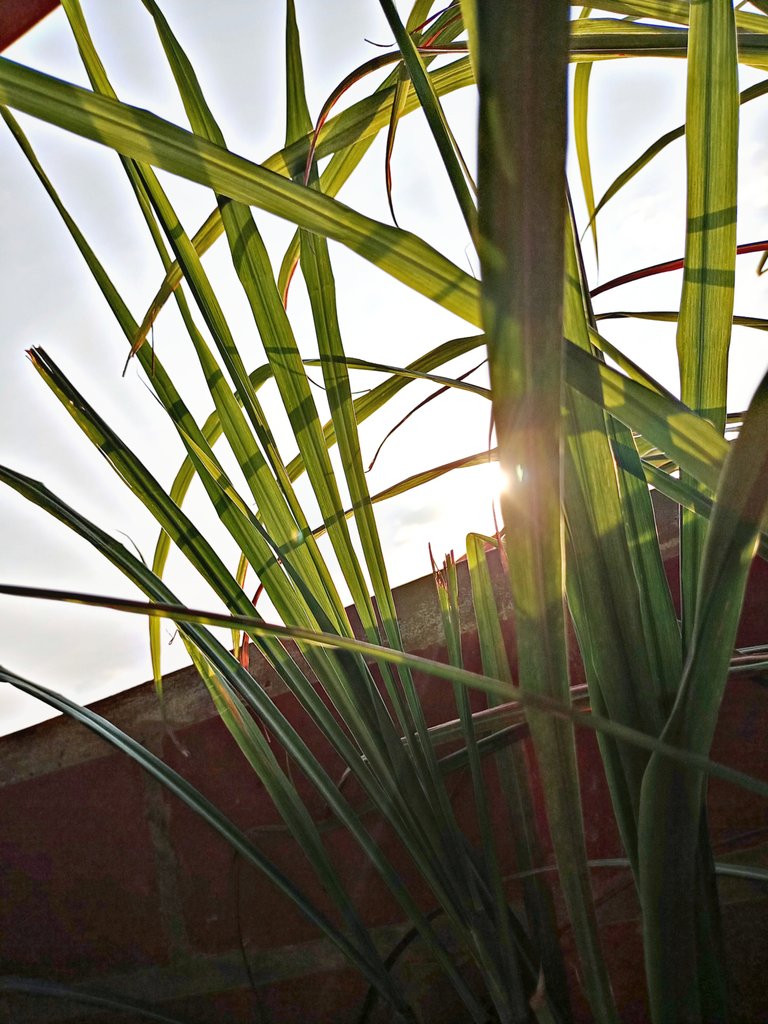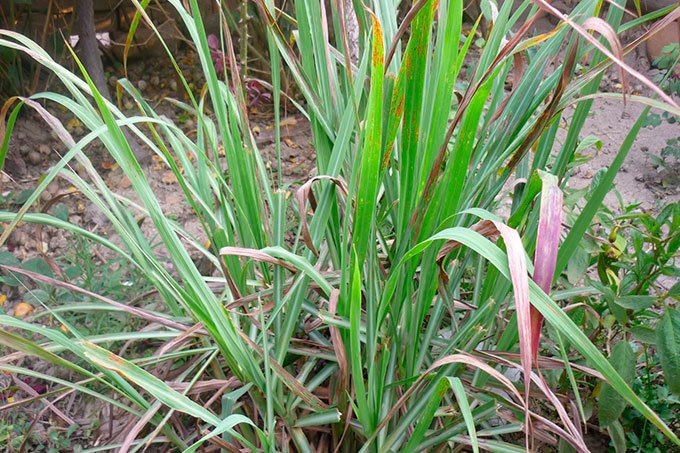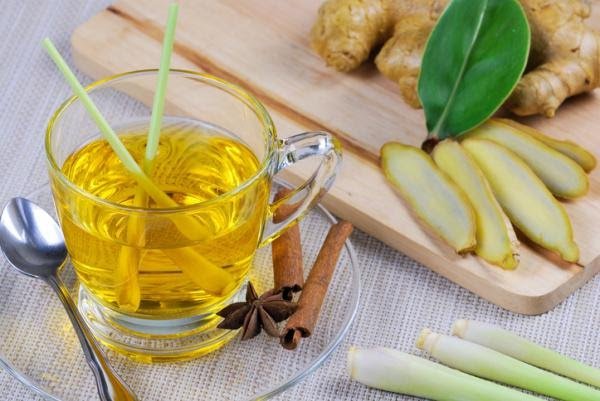
ENGLISH:
!!!HI EVERYONE!!! I sincerely hope that you are very well, your humble server @vicsdark (Victor) greets you, a pleasure to be able to share this interesting information in this beautiful community @NaturalMedicine.
¿Have you heard of the malojillo? There are many people who do not know about the existence of this plant and, therefore, do not know how they can take advantage of the benefits that it is able to bring to our body. The malojillo is a plant with long leaves (they can reach more than 1 meter) popularly known as lemon grass, lemon balm, lemongrass, lemongrass, lemon grass, pajete, lemon cane, holy cane, fever grass, Lemon straw, lemon grass, Paraguayan lemon verbena or lemon verbena, among other names.
Regardless of the name by which you know it, this plant is one of the most beneficial for health, which is why in the following article I will show you what Malojillo is for, as well as its benefits, properties and appropriate uses for health.
SPANISH:
!!! HOLA A TODOS !!! Espero sinceramente que esten muy bien, tu humilde servidor @vicsdark (Victor) te saluda, un placer poder compartir esta interesante información en esta hermosa comunidad @NaturalMedicine.
¿Has oído hablar del malojillo? Son muchas las personas que desconocen la existencia de esta planta y, por tanto, no saben cómo pueden aprovechar los beneficios que es capaz de aportar a nuestro organismo. El malojillo es una planta de hojas largas (pueden llegar a medir más de 1 metro) conocida popularmente como limoncillo, toronjil, limoncillo, limoncillo, limoncillo, pajete, limoncillo, caña santa, hierba de la fiebre, pajita de limonero, limoncillo, Hierba de limón paraguaya o hierba de limón, entre otros nombres.
Independientemente del nombre por el que la conozcas, esta planta es una de las más beneficiosas para la salud, por eso en el siguiente artículo te mostraré para qué sirve el Malojillo, así como sus beneficios, propiedades y usos adecuados para la salud.

ENGLISH:
¿What is malojillo, and what are its health properties?
The malojillo is known as an aromatic herb of the grass family; it is an evergreen plant found mostly in hot climates and grows continuously. Due to its pleasant lemon smell, it is also called lemongrass. This plant has a large number of properties:
1: Diuretics
2: Antioxidants
3: Antibacterial
4: Antispasmodics
5: Antiseptics
SPANISH:
¿Qué es el malojillo y cuáles son sus propiedades para la salud?
El malojillo se conoce como una hierba aromática de la familia de las gramíneas; es una planta de hoja perenne que se encuentra principalmente en climas cálidos y crece continuamente. Debido a su agradable olor a limón, también se le llama limoncillo. Esta planta tiene una gran cantidad de propiedades:
1: diuréticos
2: antioxidantes
3: antibacteriano
4: Antiespasmódicos
5: Antisépticos

ENGLISH:
¿What is Malojillo good for? (Benefits and uses):
1: (Detoxification of the body): Thanks to its diuretic properties, malojillo is an herb that fights toxins in the body, thus contributing to a better functioning of the kidneys and liver, among other organs. Lemongrass removes accumulated fats in the body and helps maintain the health of the digestive system.
2: (Reduces nervousness): Another benefit of lemongrass is that it is perfect for reducing nervousness and stress, as well as seizures and vertigo symptoms. This is due to its great relaxing properties, perfect also for stimulating the mind.
3: (Combat insomnia): Also closely linked to its relaxing properties, since lemon grass is able to relax muscles and, consequently, to combat episodes of insomnia.
4: (Prevents respiratory disorders): This plant also prevents colds and coughs, as its high content of vitamin C can help you fight cold symptoms such as nasal congestion or other symptoms associated with the flu.
5: (Fights infections): Malojillo tea is also very effective against skin infections, scabies, athlete's foot and even urinary infections. This is possible thanks to its antimicrobial and antifungal properties.
6: (Prevents digestive disorders): Possessing antispasmodic properties, lemongrass can also help relieve menstrual cramps and belly aches.
7: (It serves as a repellent): The malojillo is also usually used as a mosquito repellent, since the citrus smell of the lemon of this plant is very annoying for insects.
SPANISH:
¿Para qué sirve el Malojillo? (Beneficios y usos):
1: (Desintoxicación del organismo): Gracias a sus propiedades diuréticas, el malojillo es una hierba que combate las toxinas en el organismo, contribuyendo así a un mejor funcionamiento de los riñones y el hígado, entre otros órganos. El limoncillo elimina las grasas acumuladas en el cuerpo y ayuda a mantener la salud del sistema digestivo.
2: (Reduce el nerviosismo): Otro beneficio del limoncillo es que es perfecto para reducir el nerviosismo y el estrés, así como los síntomas de convulsiones y vértigo. Esto se debe a sus grandes propiedades relajantes, perfectas también para estimular la mente.
3: (Combate el insomnio): También muy ligado a sus propiedades relajantes, ya que el limoncillo es capaz de relajar los músculos y, en consecuencia, de combatir episodios de insomnio.
4: (Previene trastornos respiratorios): Esta planta también previene resfriados y toses, ya que su alto contenido en vitamina C puede ayudarte a combatir los síntomas del resfriado como la congestión nasal u otros síntomas asociados a la gripe.
5: (Combate infecciones): El té Malojillo también es muy eficaz contra infecciones cutáneas, sarna, pie de atleta e incluso infecciones urinarias. Esto es posible gracias a sus propiedades antimicrobianas y antifúngicas.
6: (Previene los trastornos digestivos): Posee propiedades antiespasmódicas, la hierba de limón también puede ayudar a aliviar los cólicos menstruales y los dolores de estómago.
7: (Sirve como repelente): El malojillo también se suele utilizar como repelente de mosquitos, ya que el olor cítrico del limón de esta planta es muy molesto para los insectos

ENGLISH:
¿How to drink and prepare Malojillo Tea?
To benefit from the benefits of this medicinal plant, it is best to take malojillo in the form of tea or infusion. If you want to make this tea, you will only have to follow the instructions below:
1: Bring a liter of water to boil and, when it is boiling, add 15 or 20 grams of malojillo leaves.
2: Turn off the heat and let the infusion rest for 10 minutes.
3: The last step in the preparation of the medicinal plant tea will consist of straining the result and ingesting a daily cup of tea without excesses.
SPANISH:
¿Cómo beber y preparar el té Malojillo?
Para beneficiarse de los beneficios de esta planta medicinal, lo mejor es tomar malojillo en forma de té o infusión. Si quieres hacer este té, solo tendrás que seguir las instrucciones a continuación:
1: Pon a hervir un litro de agua y, cuando esté hirviendo, añade 15 o 20 gramos de hojas de malojillo.
2: Apagar el fuego y dejar reposar la infusión durante 10 minutos.
3: El último paso en la preparación del té de plantas medicinales consistirá en colar el resultado e ingerir una taza de té diaria sin excesos.

ENGLISH:
¿What are the contraindications?
There are not too many contraindications when taking malojillo, but you do have to take these tips into account:
1: If you are pregnant or breastfeeding, do not ingest this infusion under any circumstances, as it could pass into the milk and be transmitted to the baby, which could be harmful to the baby.
2: Like all medicinal plants, it is recommended not to exceed the dose that is ingested each day. You should not drink more than two or three cups a day.
3: Prepare malojillo tea in low concentrations, since otherwise it could be toxic to your body.
4: If you are taking any medication, especially antibiotics, consult your doctor before taking malojillo, as it can cause interactions with said medication and could be harmful to your health.
5: In the event of any reaction to this infusion, do not ingest it any more and go to a doctor to examine you, as you could have an allergy or intolerance to this plant, although it is not common for this to happen.
This article that I share with you is totally informative. I also invite you to see a doctor in case of any kind of discomfort or condition.
Information obtained from the website: https://www.google.com/amp/s/www.mundodeportivo.com/uncomo/salud/articulo/para-que-sirve-el-malojillo-49609.html%3famp=1
!!! A STRONG HUG AND SEE YOU LATER !!!
SPANISH:
¿Cuáles son las contraindicaciones?
No existen demasiadas contraindicaciones a la hora de tomar malojillo, pero sí hay que tener en cuenta estos consejos:
1: Si está embarazada o amamantando, no ingiera esta infusión bajo ningún concepto, ya que podría pasar a la leche y transmitirse al bebé, lo que podría ser perjudicial para el bebé.
2: Como todas las plantas medicinales, se recomienda no exceder la dosis que se ingiere cada día. No debes beber más de dos o tres tazas al día.
3: Prepara té de malojillo en bajas concentraciones, ya que de lo contrario podría resultar tóxico para tu organismo.
4: Si está tomando algún medicamento, especialmente antibióticos, consulte a su médico antes de tomar malojillo, ya que puede provocar interacciones con dicho medicamento y podría ser perjudicial para su salud.
5: Ante cualquier reacción a esta infusión, no la ingieras más y acude a un médico para que te examine, ya que podrías tener alergia o intolerancia a esta planta, aunque no es común que esto suceda.
Este artículo que les comparto es totalmente informativo. También te invito a ver a un médico en caso de cualquier tipo de malestar o afección.
Información obtenida del sitio web: https://www.google.com/amp/s/www.mundodeportivo.com/uncomo/salud/articulo/para-que-sirve-el-malojillo-49609.html%3famp=1
!!! UN FUERTE ABRAZO Y HASTA LUEGO!!!
Source of copypasta
Copying/Pasting content (full or partial texts, video links, etc.) with adding very little original content is frowned upon by the community. Repeated copy/paste posts could be considered spam.
Spam is discouraged by the community and may result in the account being Blacklisted.
If you believe this comment is in error, please contact us in #appeals in Discord.